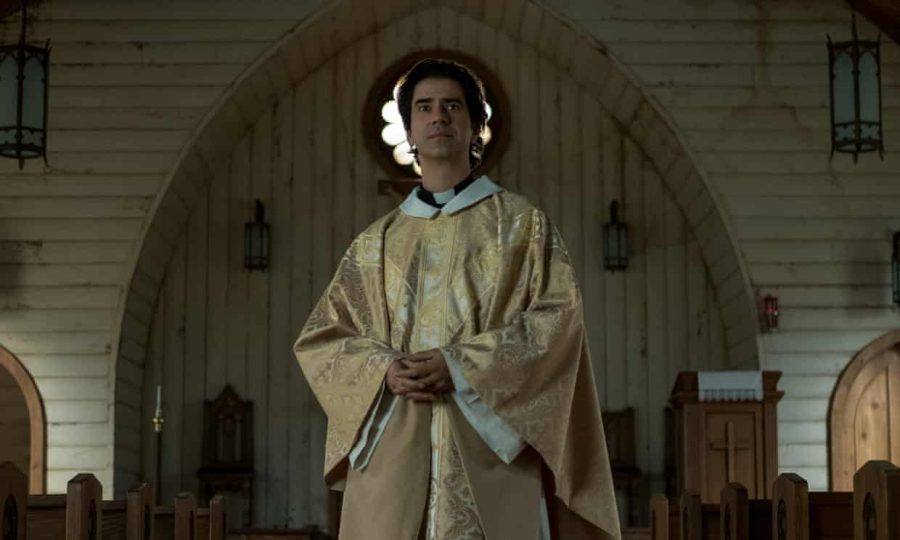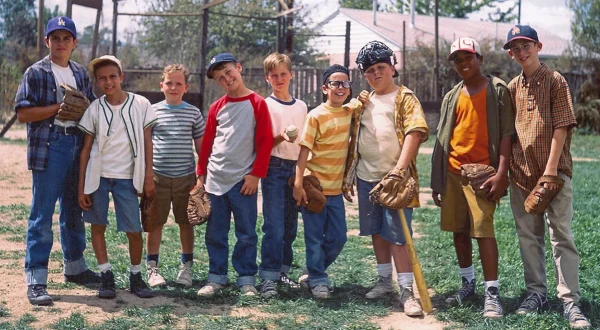‘Midnight Mass’ triggers contemplation of mortal existence
Photo courtesy of Eike Schroter
Pictured is Hamish Linklater as Father Paul in “Midnight Mass.” The Netflix series leads viewers down a path of contemplation about religion, death and more.
If you are uncomfortable with contemplating religion, what happens after death, religion-inspired extremism and violence — or when faced with intense gore — then “Midnight Mass” is not a show for you.
These themes come to play a central role in Netflix’s new series that tells the story of secluded Crockett Island and its lonely inhabitants, whose only method of leaving the island is from a ferry line to the mainland. Upon the arrival of a mysterious and jubilant priest named Paul, Crockett Island begins to face truly fantastic occurrences, although they are accompanied by frightening, god-like omens.
The limited nature of this series only increases the contemplation the audience will inevitably dive into following their viewing of this show. Crockett Island’s storybook — as quaint and pristine as it may appear — may have some pages unceremoniously torn out in the darkest confines of human nature and psyche.
Much of the show focuses on the relationship developed between Father Paul — of Crockett’s St. Patrick Catholic Church — and Riley Flynn, a failed venture capitalist who returns home to the island following his prison sentence for manslaughter. At the insistence of his parents, Riley accompanies the family to the weekly mass held at St. Patrick’s, and it is with this re-exposure to religion that Riley is introduced to the enigmatic, yet captivating Father Paul.
“Midnight Mass” is defined by Crockett Island’s extremes, which is primarily showcased by its blatant examination of the role that religion plays in the lives of day-to-day people. It speaks to how people with different religious beliefs — in Crockett’s case, chiefly Catholics and Muslims — both align and differ in their religiosity, while offering an intimate look into how people who believe in Atheism and Agnosticism view the role of religion in things such as public life and schooling.
Every one of the seven episodes of this initially sullen, but ultimately bittersweet series is named after a book of the Bible, and scrupulous viewing may allow you to pick up on the subtle themes that inspired each episode’s title. Similarly, the show’s plot development follows what Crockett Island’s Catholic population would theorize to be the true coming of God’s wicked wrath, confession and forgiveness included.
One thing to make clear is “Midnight Mass” is not an endorsement of any religious or spiritual beliefs, as the show’s director Mike Flanagan has and will attest to explicitly.
In addition to an intimate portrayal of the inner conflicts of spirituality — which are embodied in the tumultuous relationship between Father Paul and Riley Flynn — the show wrestles with what happens when you die. It strikes the pulsating, blood-gorged jugular of related issues such as the meaning of existence as humans, and what spirituality determines when everything goes black. However, the show is not without its tragically heartbreaking moments, as Riley Flynn comes to display in his search for reasons to live with islander Erin Greene.
Asserting a brutal and at times unforgiving argument on the highlights and excesses of organized religion — but not of spirituality and religious beliefs themselves — it makes you uncomfortably contemplative as things you may very well believe are eviscerated in this dark story. “Midnight Mass” makes you think about what truly determines the internal supremacy of your own beliefs over someone else’s, and what separates the saints from sinners in our flawed perspective of humanity.








Kristin F • Sep 26, 2023 at 9:35 PM
Well said. Well written. This sums it up perfectly and in it’s entirety. I just started and finished this series in the last couple of weeks and it is still sitting in my thoughts. Thanks!